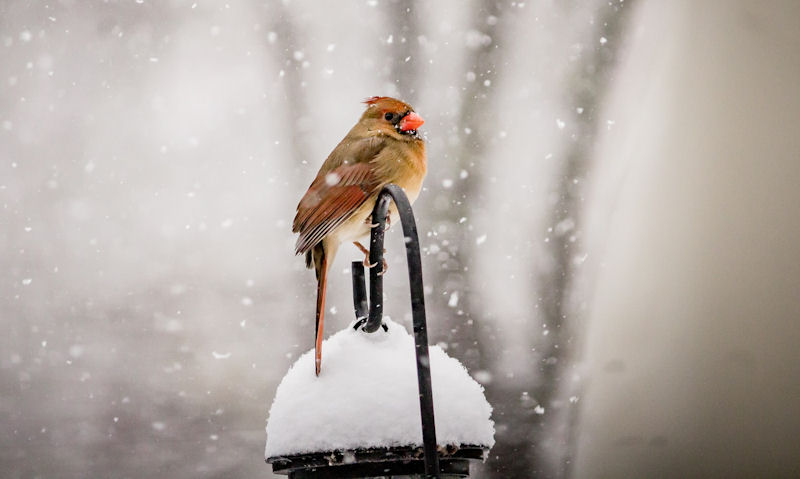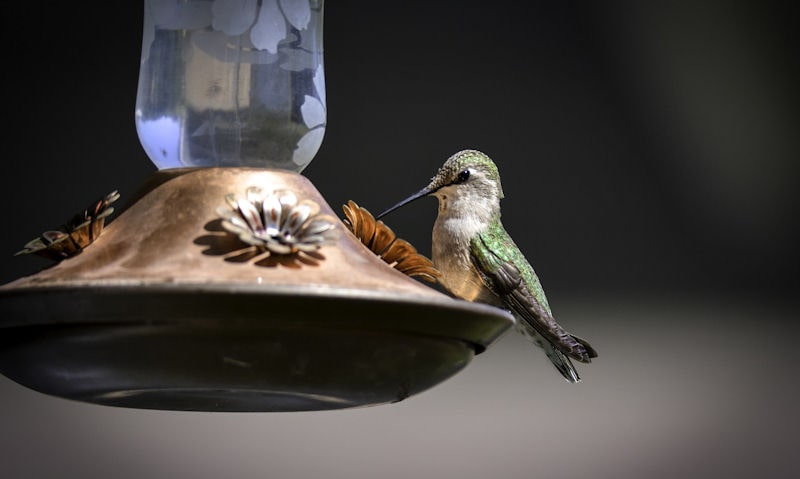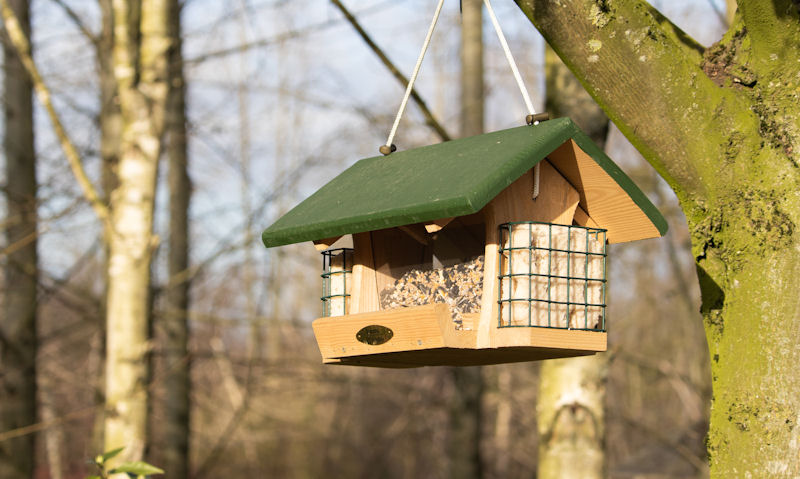Should bird feeders be used in winter
What you may of heard or believe to be true about feeders not being used in the winter, its not true as birds come to rely on bird feeders in the cold more than ever.
Feeders should be used in wintertime as the low temperature brings along spells of snow, or more importantly frost. Where there's snow or frost the birds natural food resources become trapped. This is where backyard birds rely upon you to frequent the feeders so they are accessible during these dire time.
Be it through rumor or hearsay, bird feeders must be used 365 days of the year, as birds become reliant on the food offered to them daily.
Birds frequent your backyard in the promise of you feeding them around the clock; for feeders to disappear when they're needed the most, would be a poor move on your part.
Feeders are used in the winter as food found in nature becomes unavailable, due to snow or frost freezing over the bugs, spiders, insects or fruits wild birds commonly feed on in the wild.
Birds must then arrive at your feeders to replace the fat they use up more in a quest to access food they are simply unable to access in nature.
On your part its up to you to frequent the bird feeders twice a day to replenish with food, as food is use up far more quickly. While this would be interspersed with attending the feeders to remove snow coverage or shake the feeders to stop them freezing over.
Food shortages is a real thing for birds come harsh winter months, so be prepared for with this by stocking up with high energy, fatty bird food such as suet cakes or fat balls.
Feeders must be used in winter
Absolutely should bird feeders be used in winter, to which the backyard birds continue to rely on more than ever.
Feeders are used in the winter just as much as the rest of the year.
You could be thinking feeders shouldn't be used in winter due to frost or snow damage, but don't let that discourage you.
Bird feeders can outlast in all kinds of weather, just as they're design too. To care more about damage done to the feeders more than wild birds well-being can do more harm than you know.
Birds need access to bird feeders in December through February much as they do in Autumn time when the weather was previously frosty and freezing.
You can pull down your peanut feeders if you wish but seed feeder are essential.
What is more important is replenished feeders over the winter with the suet feeder kind, as birds need to replace lost fat via high energy food.
Food shortages likely
Make no mistake, in States that receive a long or short spell of snow, or similarly a period of frost, bird feeders are needed more than ever.
In case of a blanket of snow that stays for two to three weeks at a time, the snowfall simply covers up wild birds' natural food on the ground.
Insects, bugs and spiders often die out or become harder to forage far, thus this is made harder for birds as they're unable to forage in the snow.
Food shortages is very likely then, as such bird feeders would be used more than they have have before.
As it happens, shortage of food can also exist in bird feeders even when there's food made available.
What happens is bird feeders freeze over so the food becomes rock hard, as such the food in nature or offered in backyards is non existent.
Remember then wild birds need to maintain their body fat, and with winter bringing difficult to forage in weather - bird feeders are replied upon more now then in Spring, Summer or Autumn time.
Feed twice a day
Not only do you have to feed your backyard birds via your bird feeder everyday, but it could be you'd need to do this twice daily.
It can depend on where you live in the United States mind, but for those of you who receive a varied climate that brings along a blanket of snow and frost on time, every year - then this would apply to you.
Birds eat far more in the winter time as its in their nature to replace lost body fat.
Foraging throughout the day they would naturally eat more even when its not really needed - as such then you can expect your feeders to be pillaged quite quickly.
When birds come to your yard to feed in the early morning, it can be before mid morning before half of the food in the feeder has gone. Less so if using multiple feeders but it would become obvious if using only the one feeder.
Now its up to you to wait for an opening as to not disturb the feeding birds, to replenish the feeders with fresh food.
Come mid day should be a good time but there's certainly no harm in doing it earlier or waiting until later in the day if the feeders are still topped up in the meantime.
Frequently attend feeders
Unlike the warm, cool days of spring through summertime, where only rain is likely to disturb your bird feeder setup, that isn't so for winter as you can imagine.
You can then expect to be more busy in the yard while attending the feeders in December through February - to not only replace the food used up, but to shake off access snow, if any.
You'd soon come around to this routine but if it were to snow, feeders can be left as is, but removing the snow topped feeders does help.
It won't so much assist the birds at the feeder, but indeed a snow topped feeder can be extra heavy, thus the object the feeder is hanging off can weaken under the stain.
Its not really a bother as you only need to unhook the feeder, tip or shake the snow off then hang it back up.
In the coming days or weeks with the more awkward to manipulate frost, now you could bring in the feeders overnight to avoid the frost. In the day you can simply shake the feeder to continue to keep the seeds or peanuts moving, to prevent them sticking.
Suet in any form is likely to be used more over the winter, but I don't know how you'd stop the suet cakes or blocks freezing up. If you can then simply switch over to suet pellets to offer few at a time to prevent them freezing up if left out too long.
Summarizing it all up
I have to say I do enjoy feeding birds over the wintertime as it can bring a few delightful surprises in wild bird behavior, but I would say it can bring great difficulty.
I can tell you to never take down bird feeders in the winter, as feeders should be used in winter as much as they are used the rest of the year.
Birds find it harder to forage for food in winter where there's a spell of snow or frost on the ground, as this rock hard coverage traps their natural food in the ground or up in trees and vegetation.
And while this can apply to bird feeders food freezing up in a frost, at least when it snows there's still a chance the bird food is accessible.
Food shortages are more likely in wintertime, as such its vital you replenish all your feeders over the coming months to get birds through this dire time.
You'd probably notice food is consumed more in winter as birds need to restore lost fat by eating more energy centric food like suet - so you may find yourself replacing the bird food twice a day.
Winter can make it harder for birds to feed in the wild, but so to can it be made harder to feed at the feeders.
This would then require you to frequent the feeders more often to tip off the snow sitting on top of the feeders, or indeed shake the bird food to stop it sticking in the frost.


